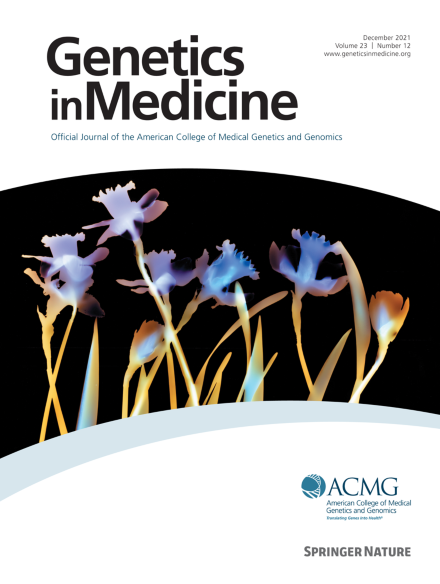Digital technologies in genetic counseling: Recommendations for a morally sound integration
IF 6.6
1区 医学
Q1 GENETICS & HEREDITY
引用次数: 0
Abstract
To address the increasing demand for clinical genetic counseling, digital technologies are currently being developed to increase efficiency and overcome logistical and societal barriers in genetic health care. However, it is not self-evident that genetic technologies will improve the quality of and access to genetic counseling. Moreover, several ethical questions about the appropriate tasks of digital technologies in the genetic care process have been raised, particularly when personal contact is supplemented or even replaced with digital technologies. Ethical reflections on the introduction of digital resources in genetic counseling are scarce. Here, we reflect on 3 central domains in which promises of the digitalization of genetic counseling are generally discussed: (1) promoting patient autonomy and patient-centered care, (2) increasing efficiency, and (3) increasing accessibility. We argue that the benefits of digitalization are not self-evident and are paired with challenges. We conclude by offering 4 recommendations to promote the ethically sound development of digital technologies in genetic health care: (1) specify the intended tasks and expected benefits of the digital technology, (2) identify potential challenges of digitalization, (3) consider the role of end users within the genetic care process, and (4) ensure iterative stakeholder consultation and engagement.

遗传咨询中的数字技术:道德健全整合的建议。
为了应对对临床遗传咨询日益增长的需求,目前正在开发数字技术,以提高效率并克服遗传保健中的后勤或社会障碍。然而,遗传技术将提高遗传咨询的质量和获取途径并不是不言而喻的。此外,关于数字技术在遗传护理过程中的适当任务的几个伦理问题已经提出,特别是当个人接触被数字技术补充甚至取代时。目前,在遗传咨询中引入数字资源的伦理反思较少。在这里,我们反思了三个中心领域,其中遗传咨询数字化的承诺在文献中普遍讨论(1)促进患者自主和以患者为中心的护理,(2)提高效率,(3)增加可及性。我们认为,数字化的好处并非不言而喻,而且伴随着挑战。最后,我们提出了四项建议,以促进遗传保健中数字技术的道德合理发展:(1)指定数字技术的预期任务和预期收益,(2)确定数字化的潜在挑战,(3)考虑最终用户在遗传保健过程中的作用,以及(4)确保利益相关者的反复咨询和参与。
本文章由计算机程序翻译,如有差异,请以英文原文为准。
求助全文
约1分钟内获得全文
求助全文
来源期刊

Genetics in Medicine
医学-遗传学
CiteScore
15.20
自引率
6.80%
发文量
857
审稿时长
1.3 weeks
期刊介绍:
Genetics in Medicine (GIM) is the official journal of the American College of Medical Genetics and Genomics. The journal''s mission is to enhance the knowledge, understanding, and practice of medical genetics and genomics through publications in clinical and laboratory genetics and genomics, including ethical, legal, and social issues as well as public health.
GIM encourages research that combats racism, includes diverse populations and is written by authors from diverse and underrepresented backgrounds.
 求助内容:
求助内容: 应助结果提醒方式:
应助结果提醒方式:


